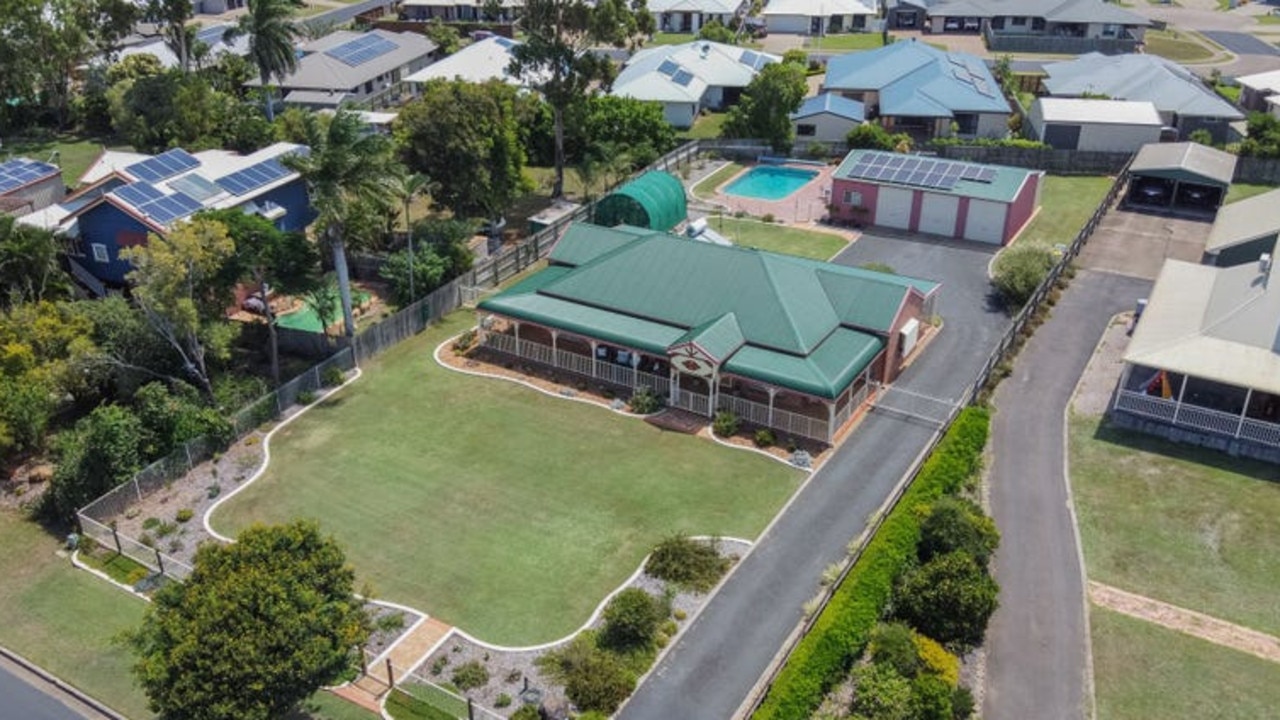University of Tasmania report for the Australian Housing and Urban Research Institute sheds light on housing, covid-19 and the way forward
Regional housing markets increased in value more than those in capital cities last year, sparking calls for governments to take a unified approach to supporting regional Queenslanders.

Bundaberg
Don't miss out on the headlines from Bundaberg. Followed categories will be added to My News.
Regional housing markets increased in value more than those in capital cities last year, sparking calls for governments to take a unified approach to supporting regional Queenslanders caught up in a dire rental shortage.
The data was revealed in a University of Tasmania report compiled for the Australian Housing and Urban Research Institute published Thursday.
The report identifies migration to regional areas as most likely due to smaller cities being perceived as "safer" than major cities in a pandemic.
"In fact, while values in cities decelerated as a result of the Covid-19 crisis, regional values have been growing at 5 per cent per annum, surpassing the growth rate in cities," lead report author Julia Verdouw said.
According to the report, an increase in demand for regional rental properties could be due to a slowing of investor activity, mostly likely reflecting lower investor confidence in the wake of fewer incentives to invest in property, increased numbers of tenants who owe arrears, policy which has protected tenants and lower migrant housing demand.
Power cuts homes, but no rain damage
"There is a risk that landlords may shape future risk mitigation strategies in ways that further exclude renting to lower income tenants because they perceive these groups to present a greater risk to rental revenue," Dr Verdouw said.
Another important impact on regional housing during the pandemic has been that JobKeeper and the coronavirus supplement for income support recipients have buffered the effects of job and income losses.
The winding back of these government economic supports will expose people to housing risk, according to the study.
The report comes as the nation struggles to find ways to cope with the housing crisis, in which 80 per cent of Queensland is suffering dire shortages of homes.
The rental vacancy rate in Bundaberg is currently sitting at 0.5 per cent, with locals forced to live in tents and vans.
The University of Tasmania report reveals home values have gone up 6 per cent in regional Queensland over the past 12 months, while Brisbane's growth in property values in that time was just 3.2 per cent.
Regional Queensland has shown the strongest growth in both property values and home loan demand in the last quarter.
Data from March 31 to November 30, 2020, shows rents went up by 3.6 per cent in regional Queensland, compared with a 1.2 per cent increase in Brisbane.
The report states that there has always been good reason to develop and invest in Australia's regional areas and says that for regions to grow and thrive, Australian policy makers need a "big picture, long-term perspective, untethered to political cycles and demonstrating a deep political commitment to reducing regional and rural poverty and narrowing wealth inequality in Australia."
The report further states that: "secure, affordable housing for regional Australians requires targeted, needs-based access to a liveable income; also underpinned by access to diverse employment industries with a variety of education and employment pathways, including secure working conditions. It requires a social and affordable housing system responsive to addressing the housing needs of the permanent local population (which will vary by region), including a sufficient local social housing supply.
"It requires government leadership at all levels to develop strategies to invest in, support and develop local capacities, through building place-based social and economic infrastructures, including housing, that will assist to reverse disadvantage and build long-term capability in regional households and communities."
HOUSING CRISIS: What are the suggested solutions?
University of Tasmania: An apolitical, bigger picture approach to building wealth and opportunity in regions, including developing diverse industries and education and employment pathways.
Member for Bundaberg, Tom Smith: Mr Smith said the fastest way forward was for the government to provide more social housing. He said a housing construction jobs program had led to more social housing being built in the region.
Member for Hinkler, Keith Pitt: Mr Pitt said state and local governments had to encourage residential development by providing incentives and streamlining processes, with the Federal Government offering a number of incentives including the First Home Loan Deposit Scheme.
Member for Burnett, Stephen Bennett: Mr Bennett said the State Government needed to focus on delays with planning approvals and work in more with the private sector.
Bundaberg Mayor Jack Dempsey: Cr Dempsey says state and federal governments should consider policies to make finance easier to obtain for residential investment housing and offer tax incentives for landlords beyond negative gearing. He says the council has approved many residential subdivisions and offered concessions and incentives to encourage development.
REIQ: The return of the first homeowners' grant for existing homes under $750,000 to make home ownership easier and therefore take pressure off the rental market. The REIQ says this would also create an economic boost in the industry, also providing more tax money for the state.
Regional Housing Limited: An increase in both private rentals and social housing where possible, as well as tackling the stigma of homelessness.
Originally published as Call for more focus on regions as house values boom
Originally published as University of Tasmania report for the Australian Housing and Urban Research Institute sheds light on housing, covid-19 and the way forward






